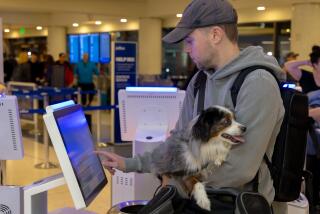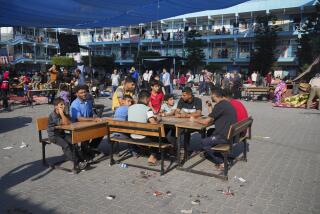In travel, fear is rarely where you think you’ll find it
“You’re going to Egypt? With all the terrorism?” my friends and family asked when I announced I would be traveling to that country in northeastern Africa.
I understood their concerns, but having taught Egyptian history and literature at the high school level for 35 years, I felt compelled to see the ancient pyramids, tombs and temples.
On Halloween 2015 I left my Redlands home and flew to Cairo.
“Welcome to Egypt!” Lorna, our Canadian guide told our group of 16 tourists assembled in the lobby.
“The Egyptian government requires a certified Egyptologist to accompany all tour groups. Please meet Ahmed.”
Tall, thirtysomething Ahmed was Egypt personified. His charismatic personality and resonant voice put us at ease. With a master’s degree in Egyptology from the University of Cairo and fluency in four languages, he immediately won our respect.
“Family!” he exclaimed, a term of endearment he would use throughout the tour.
(To see the U.S. State Department travel warning on Egypt, go to lat.ms/egyptwarning.)
A guarded Egypt tour
The next morning we left Cairo, a sea of rising minarets draped with smog. Aboard a plush touring bus with an armed guard, we traveled to Saqqara.
At the Pyramid of Djoser, three young men approached me, replaced my Adidas hat with Egyptian garb, grabbed my camera, and took a photo of me as two of them threw their arms around me.
When I reached for some Egyptian pounds to tip them, I clumsily took out some American bills. One of the men snatched a $20 bill from me.
Although I was surprised, his look of childlike joy stopped me from objecting.
“He probably never saw so much cash in his life,” Lorna said later, adding that more than a quarter of Egyptians live below the poverty line.
Throughout the tour we were approached by peddlers and beggars, some of them adorable children.
And all of us were dismayed by the large population of starving dogs and cats.
“Ahmed,” I said, “did not your ancient ancestors worship jackals and cats?”
“Yes,” he replied. “But our culture regards them as scum.”
“But you believe in Allah, right?” I said.
He said he did.
“Then you know he created all life and put us in charge of the animals.”
He smiled and said nothing. I didn’t know for sure what he was thinking, but his comments did not deter us from feeding dogs and cats for the rest of the tour.
Ahmed was a moderate Muslim who opposed the Muslim Brotherhood in support of Egypt’s moderate government.
“My wife and I will not allow our daughter to be circumcised,” he told us. And we noticed that he never bowed down and faced the East during the daily call to prayer.
Night noises, day convoy
We flew to Aswan to prepare for our trek across the vast Nubian desert to Abu Simbel in southern Egypt.
The first night at our resort along the Nile, I was sure I heard gunfire near my room and was convinced terrorists had struck. I called Lorna in a panic.
“Relax,” she said. “Those are firecrackers in celebration of a wedding along the street just above our hotel.”
The next morning we rose at 3 so a full military convoy of tanks could escort us across the desert to the temple of Ramses II at Abu Simbel.
Friendly trip, horror at home
When we returned to Aswan, we boarded a cruise ship and sailed the Nile for three days to Luxor. From there, we flew back to Cairo to prepare for our departure.
During every facet of our journey, I found Egyptians to be kind, friendly and jovial people who often greeted us on the streets. I never felt unsafe, except the night of the firecrackers. OK, and maybe when I rode a tall, homely camel for 30 minutes.
When I got back to the U.S., my friends and family told me how glad they were I was home safely.
A little more than two weeks later, an American-born man and his wife, who lived two blocks from me, shot 36 co-workers at an office holiday party in San Bernardino, killing 14 before they were killed by police.
An arsenal of weapons and bomb materials was later found in their condo.
Shukran — thank you — to Ahmed, Lorna and all my “family” in Egypt for reminding me that fear sometimes finds fertile ground in exactly the wrong place.
Departure Points, a monthly column, explores the ways in which traveling changes us, whether it’s a lesson learned or a truth uncovered. You may submit a first-person essay of 700 words or fewer to travel@latimes.com with “Departure Points” in the subject line. Please include your first and last names and your contact information for editorial consideration.
More to Read
Sign up for The Wild
We’ll help you find the best places to hike, bike and run, as well as the perfect silent spots for meditation and yoga.
You may occasionally receive promotional content from the Los Angeles Times.






